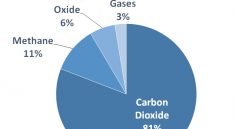Coffee grounds lawn and garden fertilizer, Get free from coffee shops and save your own, Degrade release nitrogen, Soil lab reveals phosphorus potassium magnesium copper
From Sunset.com.
Used coffee grounds make good soil amendments. That’s the buzz among gardeners lately. But what do your coffeepot’s leftovers really add to the soil?
To find out, Sunset sent a batch of Starbucks’ used coffee grounds ― the company gives them away for free ― to a soil lab for analysis. Turns out the grounds provide generous amounts of phosphorus, potassium, magnesium, and copper.
They also release nitrogen into the soil as they degrade. And they’re slightly acidic ― a boon in the Western climate.
Dig or till them into the soil to a depth of 6 to 8 inches.
FULL REPORT
The following information was developed for Sunset by Soil and Plant Laboratory Inc., Bellevue, WA.
Summary: Use of Starbucks coffee grounds in amending mineral soils up to 35 percent by volume coffee grounds will improve soil structure over the short-term and over the long-term. Use of the coffee grounds at the specified incorporation rates (rototilled into a 6- to 8-inch depth) will substantially improve availabilities of phosphorus, potassium, magnesium and copper and will probably negate the need for chemical sources of these plant essential elements.
The nitrogen, phosphorus, potassium “guaranteed analyses” would be as follows for the coffee grounds:
Nitrogen: 2.28 percent
Phosphorus: 0.06 percent
Potassium: 0.6 percent
Available nutrient levels: The pH or reaction of the coffee grounds is considered slightly acidic and in a favorable range at 6.2 on the pH scale.
Salinity (ECe) is a measurement of total soluble salts and is considered slightly elevated at 3.7 dS/m. The primary water-soluble salts in this product are potassium, magnesium, sodium and chloride. The potentially problematic ions in sodium and chloride are each sufficiently low as to be inconsequential in terms of creating problems for plants.
The availabilities of nitrogen, calcium, zinc, manganese and iron are quite low and in some cases deficient. Thus, the coffee grounds will not supply appreciable amounts of these essential plant elements when used as a mineral soil amendment.
However, the availabilities of phosphorus, potassium, magnesium and copper are each sufficiently high that there will be a very positive impact on improving availabilities of these elements where the coffee grounds are used as a mineral soil amendment. The coffee grounds will negate the need for additional sources of phosphorus, potassium, magnesium and copper when blended with mineral soils.”
Read more:
http://www.sunset.com/garden/earth-friendly/starbucks-coffee-compost-test
Washington State University
USING COFFEE GROUNDS IN GARDENS AND LANDSCAPES
Coffee roasting by product sold as fertilizer.




